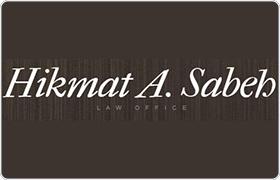Harrington Park Real Estate Other Lawyer, New Jersey
Sponsored Law Firm
-
 x
x

Click For More Info:
-
Law Office of Hikmat A. Sabeh
26 Park Street Suite 2076 Montclair, NJ 07042» view mapReal Estate Law Effective Legal Advice
We guarantee effective and aggressive representation. Our reputation and history of successful litigation speaks for itself.
800-881-0241
Includes: Commercial Leasing, Commercial Real Estate, Condominiums, Conveyancing, Housing & Urban Development, Premises Liability, Residential Real Estate, Title Insurance
Rhonda M. Benjamin
Commercial Real Estate, Alimony & Spousal Support, Child Support, Children's Rights
Status: In Good Standing
FREE CONSULTATION
CONTACTBrad Lieberman
Commercial Real Estate, International Intellectual Property, Business & Trade, Business
Status: In Good Standing
 Hikmat A. Sabeh Montclair, NJ
Hikmat A. Sabeh Montclair, NJ Practice AreasExpertise
Practice AreasExpertise
